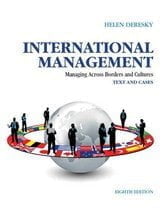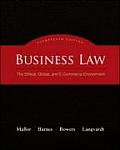Solution Manual for Human Relations: Interpersonal, Job-Oriented Skills, Fourth Canadian Edition, 4/E 4th Edition Andrew J. DuBrin, Terri M. Geerinck
$35.00 Original price was: $35.00.$26.50Current price is: $26.50.
Solution Manual for Human Relations: Interpersonal, Job-Oriented Skills, Fourth Canadian Edition, 4/E 4th Edition Andrew J. DuBrin, Terri M. Geerinck
This is completed downloadable of Solution Manual for Human Relations: Interpersonal, Job-Oriented Skills, Fourth Canadian Edition, 4/E 4th Edition Andrew J. DuBrin, Terri M. Geerinck

Product Details:
- ISBN-10 : 013310530X
- ISBN-13 : 978-0133105308
- Author: Andrew J. DuBrin, Terri M. Geerinck
The fourth Canadian edition of Human Relations: Interpersonal, Job-Oriented Skills by Andrew J. DuBrin and Terri Geerinck helps readers improve their personal skills in the workplace. By improving interpersonal skills, a person has a better chance of capitalizing upon his or her other skills, and two primary approaches are used in this text to achieve this lofty goal: an emphasis on the basic concepts to enhance understand of key topics in interpersonal relations in organizations, and skill-building suggestions, exercises, and cases to improve interpersonal skills through practice.
Table of Content:
- Chapter 1 A Framework for Interpersonal Skill Development
- Learning Objectives
- Learning Objective 1 Plan of the Text
- Learning Objective 2 A Model for Improving Interpersonal Skills
- Goal or Desired State of Affairs
- Fine Points about Goal Setting
- Assessing Reality
- An Action Plan
- Feedback on Actions
- Frequent Practice
- Skill-Building Exercise 1-1 Applying the Model for Improving Interpersonal Skills
- Learning Objective 3 Identification of Developmental Needs
- Learning Objective 4 Universal Needs for Improving Interpersonal Relations
- Self-Assessment Quiz 1-1 What Are Your Developmental Needs?
- Developing Interpersonal Skills on the Job
- Informal Learning
- Specific Developmental Experiences
- Developing Your Human Relations Skills and Reinforcing Concepts
- Summary
- Questions for Discussion and Review
- Multiple Choice
- Short Answer
- The Web Corner
- Chapter 2 Understanding Individual Differences
- Learning Objectives
- Learning Objective 1 Learning Objective 2 Personality
- Eight Major Personality Factors and Traits
- Self-Assessment Quiz 2-1 The Risk-Taking Scale
- The Eight Factors and Traits and Job Performance
- Extraversion and Self-Monitoring
- Organizational Citizenship Behaviour
- Turnover and Personality
- Optimism and Pessimism
- Combination of Standing on Several Personality Traits
- Cognitive Styles and Personality Types
- Learning Objective 3 Guidelines for Dealing with Different Personality Types
- Skill-Building Exercise 2-1 Personality Role-Plays
- The Extravert:
- The Open-to-Experience Type:
- The Organizational Citizen:
- Cognitive Ability
- Traditional Intelligence
- Practical Intelligence
- Multiple Intelligences
- Emotional Intelligence
- Skill-Building Exercise 2-2 Adapting to People of Different Mental Ability
- The Cognitively Skilled Co-Worker:
- The Cognitively Average Team Member:
- Learning Objective 4 Guidelines for Relating to People of Different Levels and Types of Intelligence
- Skill-Building Exercise 2-3 Helping an Intellectually Challenged Worker Get Started
- Values as a Source of Individual Differences
- Classification of Values
- Generational Differences in Values
- How Values Are Learned
- Clarifying Your Values
- Self-Assessment Quiz 2-2 Clarifying Your Values
- The Mesh between Individual and Job Values
- Learning Objective 5 Guidelines for Using Values to Improve Interpersonal Relations
- Skill-Building Exercise 2-4 The Value-Conflict Role-Play
- Developing Your Human Relations Skills and Reinforcing Concepts
- Summary
- Questions for Discussion and Review
- Multiple Choice
- Short Answer
- The Web Corner
- Chapter 3 Building Self-Esteem and Self-Confidence
- Learning Objectives
- Learning Objective 1 The Meaning of Self-Esteem, Its Development and Consequences
- Self-Assessment Quiz 3-1 The Self-Esteem Checklist
- How Self-Esteem Develops
- The Consequences of High Self-Esteem
- Career Success
- Good Mental Health
- Profiting from Feedback
- Organizational Success
- Potential Negative Consequences
- Learning Objective 2 Enhancing Self-Esteem
- Attain Legitimate Accomplishments
- Be Aware of Personal Strengths
- Skill-Building Exercise 3-1 Reinforcing a Positive Self-Image
- Rebut the Inner Critic
- Skill-Building Exercise 3-2 The Self-Esteem Building Club
- Practise Self-Nurturing
- Minimize Settings and Interactions That Detract from Your Feelings of Competence
- Get Help from Others
- Model the Behaviour of People with High Self-Esteem
- Create a High-Self-Esteem Living Space
- Skill-Building Exercise 3-3 The Self-Esteem Calendar
- How a Manager Helps Build the Self-Esteem of Group Members
- Learning Objective 3 The Importance of Self-Confidence and Self-Efficacy
- Self-Assessment Quiz 3-2 How Self-Confident Are You?
- Learning Objective 4 Techniques for Developing and Enhancing Your Self-Confidence
- Develop a Solid Knowledge Base
- Use Positive Self-Talk
- Avoid Negative Self-Talk
- Use Positive Visual Imagery
- Set High Expectations for Yourself (the Galatea Effect)
- Develop the Explanatory Style of Optimists
- Strive for Peak Performance
- Skill-Building Exercise 3-4 Building Your Self-Confidence and Self-Efficacy
- Bounce Back from Setbacks and Embarrassments
- Get Past the Emotional Turmoil
- Find a Creative Solution to Your Problem
- Developing Your Human Relations Skills and Reinforcing Concepts
- Summary
- Questions for Discussion and Review
- Multiple Choice
- Short Answer
- The Web Corner
- Chapter 4 Interpersonal Communication
- Learning Objectives
- Learning Objective 1 Steps in the Communication Process
- Learning Objective 2 Relationship Building and Interpersonal Communication
- Learning Objective 3 Nonverbal Communication in Organizations
- Modes of Transmission of Nonverbal Communication
- Environment
- Interpersonal Distance
- Posture
- Hand Gestures
- Facial Expressions and Eye Contact
- Voice Quality
- Self-Assessment Quiz 4-1 Voice-Quality Checkup
- Personal Appearance
- Attention Paid to Other Person
- Guidelines for Improving Nonverbal Communication
- Skill-Building Exercise 4-1 The Mirroring Technique
- Learning Objective 4 Guidelines for Overcoming Communication Problems and Barriers
- Understand the Receiver
- Minimize Defensive Communication
- Repeat Your Message Using Multiple Channels (in Moderation)
- Check Comprehension and Feelings through Verbal and Nonverbal Feedback
- Display a Positive Attitude
- Communicate Persuasively
- Engage in Active Listening
- Skill-Building Exercise 4-2 I Want a Raise
- Accept the Sender’s Figure of Speech
- Paraphrase and Listen Reflectively
- Minimize Distractions
- Ask Questions
- Allow the Sender to Finish His or Her Sentence
- Use Nonverbal Communication
- Minimize Words That Shut Down Discussion
- Avoid the Need to Lie or Fake When You Have Not Been Paying Attention
- Prepare for Stressful Conversations
- Self-Assessment Quiz 4-2 Listening Traps
- Skill-Building Exercise 4-3 Listening to a Co-worker
- The Elated Co-worker:
- The Discouraged Co-worker:
- Engage in Metacommunication
- Recognize Gender Differences in Communication Style
- Developing Your Human Relations Skills and Reinforcing Concepts
- Summary
- Questions for Discussion and Review
- Multiple Choice
- Short Answer
- The Web Corner
- Chapter 5 Interpersonal Skills for the Digital World
- Learning Objectives
- Self-Assessment Quiz 5-1 The Interpersonal Skills for the Digital World Checklist
- Learning Objective 1 Interpersonal Skills for One-on-One Interactions
- Cell Phones and Text Messaging
- Positive Interpersonal Skills While Using Cell Phones and Text Messaging
- Negative Interpersonal Skills While Using Cell Phones and Text Messaging
- Skill-Building Exercise 5-1 The Important Message
- Email Messages and Instant Messaging
- Webcam Job Interviews
- Interpersonal Aspects of Multitasking
- Multitasking and Positive Interpersonal Skills
- Multitasking and Negative Interpersonal Skills
- Harassment and Cyberbullying of Others
- Learning Objective 2 Learning Objective 3 Interpersonal Skills for Small and Large Audiences
- Social Networking by Internet
- Positive Interpersonal Skills and Social Networking
- Negative Interpersonal Skills and Social Networking
- Laptop and Personal Digital Assistant Use during Meetings and Other Formal Settings
- Skill-Building Exercise 5-2 Justifying Laptop Use during a Meeting
- Interpersonal Aspects of Presentation Technology
- Videoconferencing
- Self-Assessment Quiz 5-2 The Presentation Technology Checklist of Interpersonal Behaviours
- Interpersonal Skills Linked to Telecommuting
- Avoiding Damage to Your Online Reputation
- Developing Your Human Relations Skills and Reinforcing Concepts
- Summary
- Questions for Discussion and Review
- Multiple Choice
- Short Answer
- The Web Corner
- Chapter 6 Developing Teamwork Skills
- Learning Objectives
- Learning Objective 1 Face-to-Face versus Virtual Teams
- Self-Assessment Quiz 6-1 Team Player Attitudes
- Scoring and Interpretation:
- Face-to-Face (Traditional) Teams
- Self-Assessment Quiz 6-2 Team Skills
- Interpretation:
- Virtual Teams
- Learning Objective 2 Advantages and Disadvantages of Teams and Teamwork
- Advantages of Group Work and Teamwork
- Synergy
- Work Accomplishment and High Productivity
- Acceptance and Commitment
- Avoidance of Major Errors
- Increased Job Satisfaction
- Disadvantages of Group Work and Teamwork
- Time Wasting
- Pressures toward Conformity
- Shirking of Individual Responsibility (Social Loafing)
- Fostering of Conflict
- Groupthink
- Self-Assessment Quiz 6-3 The Conformity Quiz
- Interpretation:
- Skill Development:
- Learning Objective 3 Team Member Roles
- Self-Assessment Quiz 6-4 Team Player Roles
- Scoring and Interpretation:
- Learning Objective 4 Guidelines for the Interpersonal Aspects of Team Play
- Skill-Building Exercise 6-1 Team Member Roles
- Scenario A: Management Team
- Scenario B: Group of Sports Fans
- Scenario C: Community Group
- Trust Team Members
- Display a High Level of Cooperation and Collaboration
- Skill-Building Exercise 6-2 The Scavenger Hunt
- Recognize the Interests and Achievements of Others
- Give and Receive Helpful Criticism
- Share the Glory
- Take Care Not to Rain on Another Person’s Parade
- Learning Objective 5 Guidelines for the Task Aspects of Team Play
- Provide Technical Expertise (or Knowledge of the Task)
- Assume Responsibility for Problems
- See the Big Picture
- Believe in Consensus
- Focus on Deadlines
- Help Team Members Do Their Jobs Better
- Be a Good Organizational Citizen
- Skill-Building Exercise 6-3 Habitat for the Homeless
- Learning Objective 6 Developing Team Leadership Skills
- Self-Assessment Quiz 6-5 What Style of Leader Are You or Would You Be?
- Scoring and Interpretation:
- Skill Development:
- Engage in Shared Leadership
- Build a Mission Statement
- Skill-Building Exercise 6-4 Developing a Team Mission Statement
- Show Your Team Members That They Are Trusted
- Establish a Sense of Urgency and High Performance Standards
- Hold Question-and-Answer Sessions with the Team
- Encourage Team Members to Recognize Each Other’s Accomplishments
- Encourage Honest Criticism
- Skill-Building Exercise 6-5 Recognizing Team Accomplishments
- Use Peer Evaluations
- Help Team Members See the Big Picture
- Minimize Formation of In-Groups and Out-Groups
- Developing Your Human Relations Skills and Reinforcing Concepts
- Summary
- Questions for Discussion and Review
- Multiple Choice
- Short Answer
- The Web Corner
- Chapter 7 Group Problem Solving and Decision Making
- Learning Objectives
- Learning Objective 1 Rational versus Political Decision Making in Groups
- Self-Assessment Quiz 7-1 My Problem-Solving Tendencies
- Scoring and Interpretation:
- Learning Objective 2 Guidelines for Using General Problem-Solving Groups
- Working through the Group Problem-Solving Steps
- The Problem-Solving Steps
- Skill-Building Exercise 7-1 A General Problem-Solving Group
- When to Apply the Problem-Solving Steps
- The Importance of Collective Efficacy
- Skill-Building Exercise 7-2 Solving a Few Unusual Problems
- Problem 1: Seven Tennis Balls in a Tube
- Problem 2: The Too-Low Bridge
- Problem 3: The Aging Members of HOG
- Managing Disagreement about Group Decision Making
- Aiming for Inquiry versus Advocacy in Group Decision Making
- Learning Objective 3 Guidelines for Brainstorming
- Skill-Building Exercise 7-3 Stretch Your Imagination
- Skill-Building Exercise 7-4 Brainstorming versus Brainwriting
- Learning Objective 4 Guidelines for the Nominal Group Technique
- Skill-Building Exercise 7-5 The Nominal Group Technique
- Learning Objective 5 Using Standup Meetings to Facilitate Problem Solving
- Using Email and Groupware to Facilitate Group Decision Making
- Using Email to Facilitate Meetings
- Using Groupware to Facilitate Group Problem Solving
- Learning Objective 6 Suggestions for Being an Effective Meeting Participant
- Developing Your Human Relations Skills and Reinforcing Concepts
- Summary
- Questions for Discussion and Review
- Multiple Choice
- Short Answer
- The Web Corner
- Chapter 8 Cross-Cultural Relations and Diversity
- Learning Objectives
- Learning Objective 1 The Diversity Umbrella
- Self-Assessment Quiz 8-1 Cross-Cultural Skills and Attitudes
- Interpretation:
- Learning Objective 2 Understanding Cultural Differences
- Cultural Sensitivity and Political Correctness
- Cultural Intelligence
- Respect for All Workers and Cultures
- Cultural Fluency
- Dimensions of Differences in Cultural Values
- Skill-Building Exercise 8-1 Developing Cultural Sensitivity
- Self-Assessment Quiz 8-2 Charting Your Cultural Dimension Profile
- Scoring and Interpretation:
- Cultural Bloopers
- Learning Objective 3 Overcoming Cross-Cultural Barriers
- Skill-Building Exercise 8-2 Cultural Mistakes to Avoid with Selected Cultural Groups
- Learning Objective 4 Techniques for Improving Cross-Cultural Relations
- Skill-Building Exercise 8-3 Cross-Cultural Relations Role-Play
- Cultural Training
- Cultural Intelligence Training
- Language Training
- Diversity Training
- Forms of Diversity Training
- Skill-Building Exercise 8-4 Using the Internet to Help Develop Foreign-Language Skills
- Concerns about Diversity Training
- Cross-Cultural and Cross-Gender Mentoring Programs
- Skill-Building Exercise 8-5 Developing Empathy for Differences
- Developing Your Human Relations Skills and Reinforcing Concepts
- Summary
- Questions for Discussion and Review
- Multiple Choice
- Short Answer
- The Web Corner
- Chapter 9 Resolving Conflicts with Others
- Learning Objectives
- Learning Objective 1 Sources of Interpersonal Conflict in Organizations
- Learning Objective 2 Self-Assessment Quiz 9-1 Collaborative versus Competitive Styles of Conflict Management
- Scoring and Interpretation:
- Competition for Limited Resources
- Role Conflict
- Competing Work and Family Demands
- Work-to-Family and Family-to-Work Conflict
- The Issue of Work–Life Choices
- Company Initiatives to Reduce Work–Family Conflict
- Personality Clashes
- Bullies in the Workplace
- Incivility and Rudeness
- Cross-Generational Conflict
- Workplace Violence (A Cause and Effect of Conflict)
- Learning Objective 3 Conflict Management Styles
- Competitive Style
- Accommodative Style
- Sharing Style
- Collaborative Style
- Avoidant Style
- Skill-Building Exercise 9-1 Win–Win Conflict Resolution
- Learning Objective 4 Guidelines and Techniques for Resolving Conflicts
- Confrontation and Problem Solving
- Constructive Handling of Criticism
- Reframing
- Reframing through Cognitive Restructuring
- Skill-Building Exercise 9-2 Disarming the Opposition
- Skill-Building Exercise 9-3 Reframing through Cognitive Restructuring
- Reframing by Asking Questions
- Negotiating and Bargaining
- Understand the Other Party’s Perspective
- Self-Assessment Quiz 9-2 The Negotiator Quiz
- Scoring and Interpretation:
- Focus on Interests, Not Positions
- Compromise
- Begin with a Plausible Demand or Offer, Yet Allow Room for Negotiation
- Make Small Concessions Gradually
- Know Your Best Alternative to a Negotiated Agreement (BATNA)
- Use Anger to Your Advantage
- Allow for Face-Saving
- Learning Objective 5 Combatting Sexual Harassment: A Special Type of Conflict
- Skill-Building Exercise 9-4 Negotiating a Starting Salary
- The Adverse Effects of Sexual Harassment
- Guidelines for Preventing and Dealing with Sexual Harassment
- Skill-Building Exercise 9-5 Combating Sexual Harassment
- Scenario 1: The Offensive Jester
- Scenario 2: The Flirtatious Office Manager
- Developing Your Human Relations Skills and Reinforcing Concepts
- Summary
- Questions for Discussion and Review
- Multiple Choice
- Short Answer
- The Web Corner
- Chapter 10 Becoming an Effective Leader
- Learning Objectives
- Learning Objective 1 Key Leadership Traits to Develop
- Self-Confidence and Leadership Efficacy
- Positive Core Self-Evaluation
- Assertiveness
- Trustworthiness and Morality
- Self-Assessment Quiz 10-1 The Assertiveness Scale
- Scoring Key
- Interpretation:
- Sense of Humour
- Skill-Building Exercise 10-1 The Witty Leader
- Self-Awareness and Self-Objectivity
- Cognitive Skills Including Critical Assessments
- Knowledge of the Business
- Critical Assessments
- Independent Decision Making
- Emotional Intelligence
- Passion and Enthusiasm
- Self-Sacrificing Personality
- Learning Objective 2 Suggestions for Developing Charisma
- Skill-Building Exercise 10-2 Creating a Vision
- Learning Objective 3 Coaching and Training Others
- Coaching Skills and Techniques
- Ideal Characteristics of Peer Coaching
- Suggestions for Coaching
- Self-Assessment Quiz 10-2 Characteristics of an Effective Coach
- Training Others
- Skill-Building Exercise 10-3 Coaching a Mediocre Performer Role-Play
- Skill-Building Exercise 10-4 Designing a Training Program
- Learning Objective 4 Developing Your Leadership Potential
- Skill-Building Exercise 10-5 My Personal Leadership Journal
- Developing Your Human Relations Skills and Reinforcing Concepts
- Summary
- Questions for Discussion and Review
- Multiple Choice
- Short Answer
- The Web Corner
- Chapter 11 Skills for Motivating and Helping Others
- Learning Objectives
- Learning Objective 1 Motivation Skill Based on the Principle of “What’s in It for Me?”
- Self-Assessment Quiz 11-1 My Approach to Motivating Others
- Instructions:
- Scoring and Interpretation:
- Learning Objective 2 Using Positive Reinforcement to Motivate Others
- Rule 1: State Clearly What Behaviour Will Lead to a Reward
- Rule 2: Choose an Appropriate Reward
- Rule 3: Supply Ample Feedback
- Rule 4: Schedule Rewards Intermittently
- Rule 5: Make Sure the Rewards Follow the Observed Behaviour Closely in Time
- Rule 6: Make the Reward Fit the Behaviour
- Rule 7: Make the Reward Visible
- Skill-Building Exercise 11-2 Positive Reinforcement
- Scenario 1: Rewarding a Customer Service Representative
- Scenario 2: Rewarding Your Boss
- Rule 8: Change the Reward Periodically
- Learning Objective 3 Using Recognition to Motivate Others
- Why Recognition Is a Strong Motivator
- Approaches to Giving Recognition
- Fine Points about Using Recognition to Motivate Others
- Learning Objective 4 Using Expectancy Theory to Motivate Others
- Capsule Overview of Expectancy Theory
- Basic Components of Expectancy Theory
- How Moods Influence Expectancy Theory
- Skill-Building Exercise 11-3 Estimating Valences for Applying Expectancy Theory
- Diagnosing Motivation with Expectancy Theory
- Guidelines for Applying Expectancy Theory
- Skill-Building Exercise 11-4 Applying Expectancy Theory
- Learning Objective 5 Motivating Others by Nurturing and Mentoring
- Being a Nurturing, Positive Person
- Self-Assessment Quiz 11-2 Attitudes Toward Helping Others
- Scoring and Interpretation:
- Being a Mentor to Co-Workers
- Skill-Building Exercise 11-5 The Nurturing, Positive Person
- Characteristics and Types of Mentoring
- Specific Mentoring Behaviours
- Skill-Building Exercise 11-6 Selecting a Protégé
- My Ideal Protégé
- Helping Difficult People
- Types of Difficult People
- Self-Assessment Quiz 11-3 Helping Difficult People
- Scoring and Interpretation:
- Tactics for Dealing with Difficult People
- Stay Calm
- Provide Ample Feedback
- Criticize Constructively
- Help the Difficult Person Feel More Confident
- Use Tact and Diplomacy
- Use Non-hostile Humour
- Work Out a Deal
- Reinforce Civil Behaviour and Good Moods
- Ask the Difficult Person to THINK Before Speaking
- Report Behaviour That Continues to Be Unacceptable or Inappropriate
- Skill-Building Exercise 11-7 Dealing with Difficult People
- Scenario 1: The Bully
- Scenario 2: A No-Person
- Developing Your Human Relations Skills and Reinforcing Concepts
- Summary
- Questions for Discussion and Review
- Multiple Choice
- Short Answer
- The Web Corner
- Chapter 12 Positive Political Skills
- Learning Objectives
- Self-Assessment Quiz 12-1 Organizational Politics Questionnaire
- Scoring and Interpretation:
- Learning Objective 1 Political Skill and Other Human Relations Skills
- Sensitivity to Your Surroundings
- Emotional Intelligence and Social Intelligence
- Relationship Building with the Leader
- Overcoming the Effects of Injustice
- Learning Objective 2 Impression Management and Etiquette
- Tactics of Impression Management
- Display Organizational Citizenship Behaviour
- Build Trust and Confidence
- Be Visible and Create a Strong Presence
- Admit Mistakes
- Minimize Being a Yes-Person
- Create a Healthy Image
- Skill-Building Exercise 12-1 The Elevator 30-Second Speech
- Business Etiquette
- Etiquette for Work Behaviour, Including Clothing
- Introductions
- Relationships between Men and Women and between People of Different Ages
- Dining
- Working in a Cubicle
- Cross-Cultural Relations
- Interacting with People with Disabilities
- Skill-Building Exercise 12-2 Business Etiquette
- Scenario 1: Dining Etiquette
- Scenario 2: Etiquette for Communicating with a Person in a Wheelchair
- Learning Objective 3 Building Relationships with Managers and Other Key People
- Network with Influential People
- Help Your Manager Succeed
- Understand Unwritten Boundaries
- Volunteer for Assignments
- Flatter Influential People Sensibly
- Use Information Power
- Skill-Building Exercise 12-3 Flattering an Influential Person
- Appear Cool under Pressure
- Laugh at Your Manager’s Humour
- Express Constructive Disagreement
- Present a Clear Picture of Your Accomplishments
- Learning Objective 4 Building Relationships with Co-workers and Other Work Associates
- Maintain Honest and Open Relationships
- Make Others Feel Important
- Be Diplomatic
- Self-Assessment Quiz 12-2 How Important Do I Make People Feel?
- Scoring and Interpretation:
- Exchange Favours
- Ask Advice
- Share Constructive Gossip
- Minimize Microinequities
- Follow Group Norms
- Skill-Building Exercise 12-4 Getting Along with Co-workers Role-Play
- Scenario 1: Exchanging Favours
- Scenario 2: Express an Interest in the Co-worker’s Work
- Learning Objective 5 Avoiding Political Blunders
- Self-Assessment Quiz 12-3 The Blunder Quiz
- Scoring and Interpretation:
- Developing Your Human RelationsSkills and Reinforcing Concepts
- Summary
- Questions for Discussion and Review
- Multiple Choice
- Short Answer
- The Web Corner
- Chapter 13 Customer Satisfaction Skills
- Learning Objectives
- Self-Assessment Quiz 13-1 The Customer-Service Orientation Quiz
- Scoring and Interpretation:
- Learning Objective 1 The Three Components of Customer Experience (Service)
- Learning Objective 2 Following the General Principles of Customer Satisfaction
- Be Satisfied So You Can Provide Better Customer Service
- Receive Emotional Support from Co-workers to Give Better Customer Service
- Understand Customer Needs and Put Them First
- Focus on Solving Problems, Not Just Taking Orders
- Respond Positively to Moments of Truth
- Be Ready to Accept Empowerment
- Skill-Building Exercise 13-1 Moments of Truth
- Enhance Customer Service through Information Technology
- Avoid Rudeness and Hostility toward Customers
- Self-Assessment Quiz 13-2 Am I Being Rude?
- Interpretation:
- Learning Objective 3 Creating a Bond with Your Customer
- Create a Welcoming Attitude, Including a Smile
- Provide Exceptional Service
- Show Care and Concern
- Make the Buyer (Customer) Feel Good
- Build a Personal Relationship
- Skill-Building Exercise 13-2 Bonding with Customers
- Scenario 1: Show Care and Concern
- Scenario 2: Make the Buyer Feel Good
- Invite the Customer Back
- Learning Objective 4 Dealing with Customer Dissatisfaction
- Deal Constructively with Customer Complaints and Anger
- Involve the Customer in Working Out the Problem
- Anticipate How to Handle an Unreasonable Request
- Skill-Building Exercise 13-3 Dealing with Difficult Customers
- Scenario 1:
- Scenario 2:
- Maintain a Realistic Customer Retention Attitude
- Developing Your Human Relations Skills and Reinforcing Concepts
- Summary
- Questions for Discussion and Review
- Multiple Choice
- Short Answer
- The Web Corner
- Chapter 14 Enhancing Ethical Behaviour
- Learning Objectives
- Learning Objective 1 Why Be Concerned about Business Ethics?
- Self-Assessment Quiz 14-1 The Ethical Reasoning Inventory
- Scoring and Interpretation:
- Learning Objective 2 Common Ethical Problems
- Why Being Ethical Isn’t Easy
- A Survey of the Extent of Ethical Problems
- Frequent Ethical Dilemmas
- The Temptation to Illegally Copy Software
- Treating People Unfairly
- Self Assessment Quiz 14-2
- Sexual Harassment
- Conflict of Interest
- Dealing with Confidential Information
- Misrepresenting Employment or Education History
- Use of Corporate Resources
- Ethical Violations with Computers and Information Technology
- Wasting Company Time
- Choosing between Two Rights: Dealing with Defining Moments
- Skill-Building Exercise 14-1 The Ethics Game
- Scenario 1:
- Scenario 2:
- Scenario 3:
- Scoring and Observation:
- Source:
- Skill-Building Exercise 14-2 Dealing with Defining Moments
- Scenario 1:
- Scenario 2:
- Learning Objective 3 Guidelines for Behaving Ethically
- Developing Virtuousness
- Following a Guide to Ethical Decision-Making
- Skill-Building Exercise 14-3 Ethical Decision Making
- Scenario 1: To Recycle or Not
- Scenario 2: The Job Applicant with a Past
- Scenario 3: The High-Profit Toy
- Developing Closer Relationships with Work Associates
- Using Corporate Ethics Programs
- Self-Assessment Quiz 14-3 The Ethical Workplace Relationships Inventory
- Scoring and Interpretation:
- Being Environmentally Conscious
- Following an Applicable Professional Code of Conduct
- Skill-Building Exercise 14-4 Conducting an Environmental Audit
- Be Ready to Exert Upward Ethical Leadership
- Skill-Building Exercise 14-5 Confronting the Unethical Boss
- Developing Your Human Relations Skills and Reinforcing Concepts
- Summary
- Questions for Discussion and Review
- Multiple Choice
- Short Answer
- The Web Corner
- Chapter 15 Personal Productivity and Stress Management
- Learning Objectives
- Learning Objective 1 Increasing Personal Productivity
- Dealing with Procrastination
- Self-Assessment Quiz 15-1 Procrastination Tendencies
- Scoring and Interpretation:
- Learning Objective 2 Attitudes and Values That Increase Personal Productivity
- Begin with a Mission and Goals
- Skill-Building Exercise 15-1 Using a Mission Statement and Goals to Power Work Habits
- A. Mission Statement:
- B. Long-Range Goals to Support Mission Statement:
- C. Intermediate-Range Goals to Support Long-Range Goals:
- D.Weekly Goals to Support Intermediate-Range Goals:
- E. Today’s Goals to Support Weekly Goals (My To-Do List):
- Work Smarter, Not Harder
- Value Orderliness and Cleanliness
- Value Good Attendance and Punctuality
- Attain a Balance in Life and Avoid Being a Workaholic
- Learning Objective 3 Work Habits and Skills That Increase Personal Productivity
- Prepare a To-Do List and Set Priorities
- Streamline Your Work and Emphasize Important Tasks
- Concentrate on One Important Task at a Time Instead of Multitasking
- Stay in Control of Paperwork and Electronic Work
- Work Productively from Your Home Office or Virtual Office
- Improve Your Internet Search Skills
- Skill-Building Exercise 15-2 Boosting Productivity through Work Habits on the Internet
- Learning Objective 4 Overcoming Time Wasters
- Skill-Building Exercise 15-3 Maintaining a Time Log
- Self-Assessment Quiz 15-2 Tendencies toward Perfectionism
- Scoring and Interpretation:
- Understanding and Managing Stress
- Learning Objective 5 Symptoms and Consequences of Stress
- Physiological Reactions
- Job Performance Consequences
- Burnout and Stress
- Learning Objective 6 Personality and Job Factors Contributing to Stress
- Personality Factors Predisposing People toward Stress
- Job Sources of Stress
- Role Overload
- Role Conflict and Role Ambiguity
- Adverse Environmental Conditions
- Adverse Interaction with Customers and Clients and Emotional Labour
- Environmentally Induced Attention Deficit Disorder
- Job Insecurity and Job Loss
- Learning Objective 7 Methods and Techniques for Managing Stress
- Eliminate or Modify the Stressor
- Get Appropriate Physical Exercise
- Get Sufficient Rest
- Maintain a Healthy Diet
- Build a Support Network
- Practise Visualization and Meditation
- Skill-Building Exercise 15-4 Visualization for Stress Reduction
- Practise Everyday Methods of Stress Reduction
- Skill-Building Exercise 15-5 Personal Stress Management Action Plan
- Developing Your Human RelationsSkills and Reinforcing Concepts
- Summary
- Questions for Discussion and Review
- Multiple Choice
- Short Answer
- The Web Corner
- Chapter 16 Job Search and Care Management Skills
- Learning Objectives
- Learning Objective 1 Conducting a Job Search
- Job-Hunting Tactics
- Identify Your Job Objectives
- Be Aware of Qualifications Sought by Employers
- Identify Your Skills and Potential Contribution
- Develop a Comprehensive Marketing Strategy
- Self-Assessment Quiz 16-1 Qualifications Sought by Employers
- Interpretation:
- Use Networking to Reach Company Insiders
- Skill-Building Exercise 16-1 Extreme Job Hunting
- Use Multiple Online Approaches
- Smile at Network Members and Interviewers and Be Enthusiastic
- Smooth Out Rough Spots in Your Background
- Skill-Building Exercise 16-2 Job Hunting on the Internet
- The Résumé and Cover Letter
- Purpose of the Résumé
- Résumé Length and Format
- Video Résumés and Creative Formats
- The Cover Letter
- Performing Well in a Job Interview
- Skill-Building Exercise 16-3 The Job Interview
- Learning Objective 2 Vertical and Horizontal Career Paths
- The Vertical (Traditional) Career Path
- The Horizontal Career Path
- Skill-Building Exercise 16-4 Developing a Career Path
- Learning Objective 3 Career Advancement Strategies and Tactics
- Capitalize on Your Strengths and Build Your Personal Brand
- Be Passionate about and Proud of Your Work
- Develop a Code of Professional Ethics
- Develop a Proactive Personality
- Self-Assessment Quiz 16-2 Proactive Personality Scale
- Interpretation:
- Keep Growing through Continuous Learning and Self-Development
- Document Your Accomplishments
- Project a Professional Image
- Skill-Building Exercise 16-5 The Professional Image Investigation
- Think of Yourself as a Provider of Services
- Develop Depth and Breadth
- Rely on a Network of Successful People
- Work with a Mentor
- Skill-Building Exercise 16-6 Building Your Network
- Find a Good Person—Organization Fit
- Take Sensible Risks
- Pursue Fields and Industries Many Others Overlook
- Emphasize Relationships to Combat Being Outsourced
- Developing Your Human Relations Skills and Reinforcing Concepts
- Summary
- Questions for Discussion and Review
- Multiple Choice
- Short Answer
- The Web Corner
- Notes
- Chapter 16
- Glossary
- Notes
- Index
- A
- B
- C
- D
- E
- F
- G
- H
- I
- J
- K
- L
- M
- N
- O
- P
- Q
- R
- S
- T
- U
- V
- W
- Y
- Z
People Also Search:
human relations interpersonal job-oriented skills 4th canadian edition
human relations interpersonal job-oriented skills 4th canadian edition pdf
human relations interpersonal job-oriented skills 4th canadian edition download scribd
human relations interpersonal job-oriented skills 4th canadian edition solution manual download pdf
Related products
Solution Manual
International Accounting Doupnik 4th Edition Solutions Manual
Solution Manual
Solution Manual for Absolute C++, 5/E 5th Edition Walter Savitch
Solution Manual
Solution Manual
Solution Manual for Introduction to Robotics Mechanics and Control 3rd Edition by Craig
Solution Manual
Solution Manual











